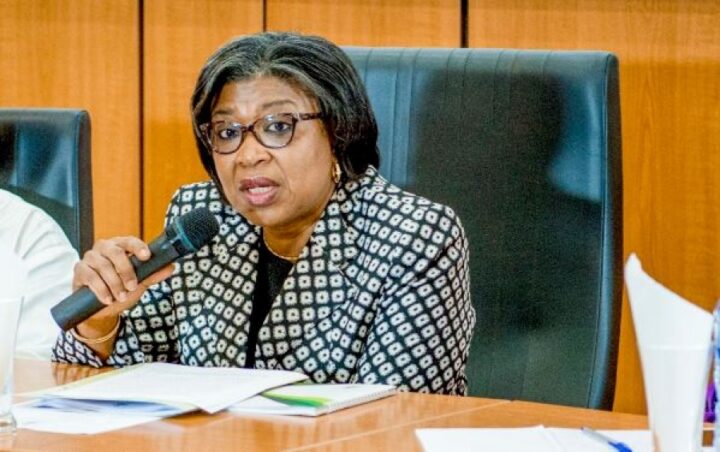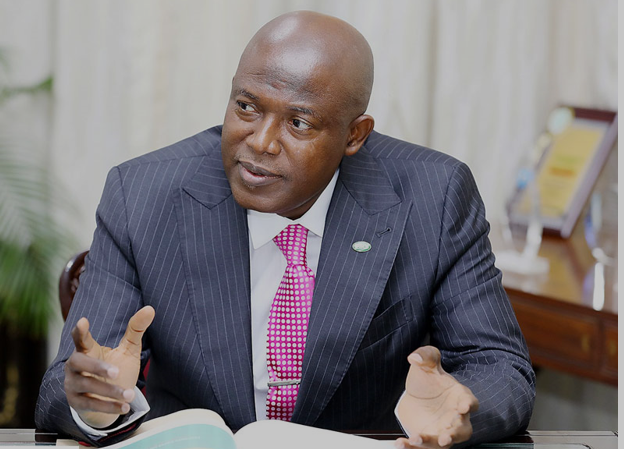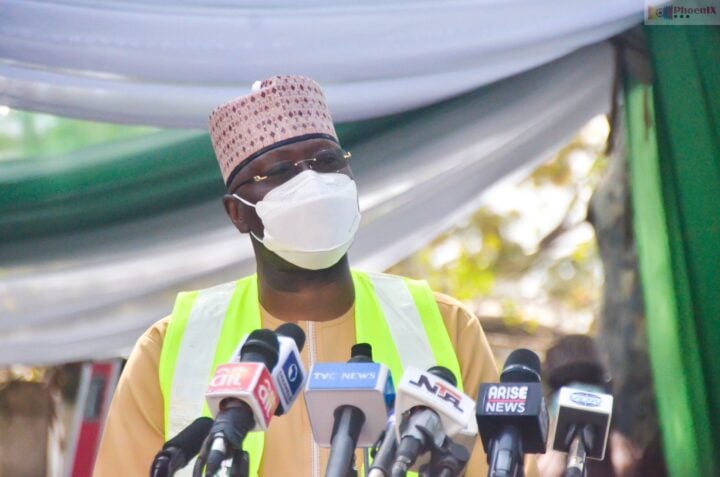Patience Oniha, director-general (DG) of Debt Management Office (DMO).
Nigeria has raised a $1.25 billion seven-year eurobond in the International Capital Market (ICM) to finance capital projects in the budget.
The Debt Management Office (DMO) said this in a circular issued on Thursday in Abuja.
The new borrowing will add to Nigeria’s total public debt at N39.556 trillion in 2021 — a nation confronted with a revenue problem.
In 2020, Nigeria spent about 97 percent of its revenue on loan repayments.
Advertisement
According to the statement, Nigeria will be the first African country to access the international capital market for debt issuance in 2022.
“Nigeria has today priced a USD 1.250 billion 7-year Eurobond in the International Capital Market (IM),” the DMO said.
“The Offer was launched at an Initial Price Thoughts of 8.75% per annum, and on the back of strong investor demand, Nigeria was able to revise the price guidance to 8.5% per annum. The Order Book continued to grow, reaching a peak of USD 4 billion.
Advertisement
“The Order Book included many quality investors in the United States, Europe and Asia. With this strong investor interest, the price was tightened to 8.375% per annum, the Order Book remained high at USD 3.676 billion and retained the quality investors.”
The Debt Office said Nigerian investors also participated in the offer with a total subscription of $60 million.
The DMO further said the proceeds of the eurobond would be used to finance critical capital projects in the budget to bridge the infrastructure deficit.
“Equally important, it would contribute directly and in full to the level of Nigeria’s external reserves,” it added.
Advertisement
Speaking at a media briefing in Abuja on Thursday, Patience Oniha, DMO’s director-general, said debt is not bad because borrowing by the government will benefit citizens and institutions.
Oniha said borrowing is not peculiar to Nigeria but that globally governments borrow to build their economies.
She said the capital projects of the government such as roads and other infrastructure built through borrowing helps create jobs and is enjoyed by citizens while the government pays off the debts over time.
On Tuesday, Zainab Ahmed, minister of finance, budget, national planning, had said the federal government will use part of the 2021 eurobond issuance to finance costly petrol subsidies this year.
Advertisement
Add a comment






